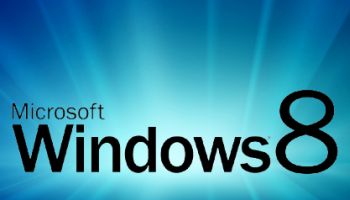Windows 8 Faces Stiff Upgrade Challenge

Microsoft could struggle to convince the traditional PC market to make the jump to Windows 8
Microsoft may be for a tough time convincing the desktop PC market to move up to Windows 8, according to one analyst group.
Redmond is currently gearing up to release the Windows 8 beta in February 2012, which will likely result in a final release near the end of that year.
However according to IDC, the operating system might not prove a blockbuster across both tablets and traditional PCs. “Windows 8 will launch with split success,” IDC analyst Al Gillen wrote in a 2 December tweet, referencing a company report predicting the state of worldwide system infrastructure software in 2012.
Upgrade Struggle
That report apparently referred to Windows 8 as “largely irrelevant to the users of traditional PCs,” and IDC expects “effectively no upgrade activity from Windows 7 to Windows 8 in that form factor,” according to portions quoted by ZDNet. (IDC has not yet returned eWEEK’s request for comment.)
 Microsoft is making a hard push for Windows 8 as a “no compromises” tablet operating system. Its user interface is bifurcated into two separate environments: one filled with colourful tiles linked to applications, supposedly ideal for tablets, and a more traditional desktop that should appeal to power PC users.
Microsoft is making a hard push for Windows 8 as a “no compromises” tablet operating system. Its user interface is bifurcated into two separate environments: one filled with colourful tiles linked to applications, supposedly ideal for tablets, and a more traditional desktop that should appeal to power PC users.
In addition, Microsoft is also equipping Windows 8 with features instantly familiar to anyone who’s used a tablet, most notably an application store with everything from games to productivity software. By baking an application storefront into Windows 8, and giving developers a significant slice of the revenue pie for successful products, Microsoft is firing a significant shot across the bow of Apple and its App Store franchise.
Late Arrival
Some analysts have also expressed concerns over Microsoft issuing Windows 8 tablets by late 2012 at the earliest.
“For tablets … Windows really isn’t a fast follower,” Forrester analyst JP Gownder wrote in a 29 November corporate blog posting. “Rather, it’s (at best) a fifth-mover after iPad, Android tablets like the Samsung Galaxy Tab, HP’s now-defunct webOS tablet, and the BlackBerry PlayBook tablets.”
Windows 8 tablets, he added, also face pressure from Amazon’s Kindle Fire and Barnes & Noble’s Nook Tablet, which “are reshaping consumer expectations in the market, driving down price points (and concomitant price expectations), and redefining what a tablet is.”
In theory, that could squeeze Windows 8 between second- and third-generation tablet rivals, all of which will be under pressure to cut prices to margin-killing levels. That would necessarily make Windows 8’s quest for a big chunk of the tablet market a little more difficult, but if Microsoft wants Windows 8 to replicate Windows 7’s phenomenal sales record, while also making its mark on the tablet industry, it has little choice but to push ahead.